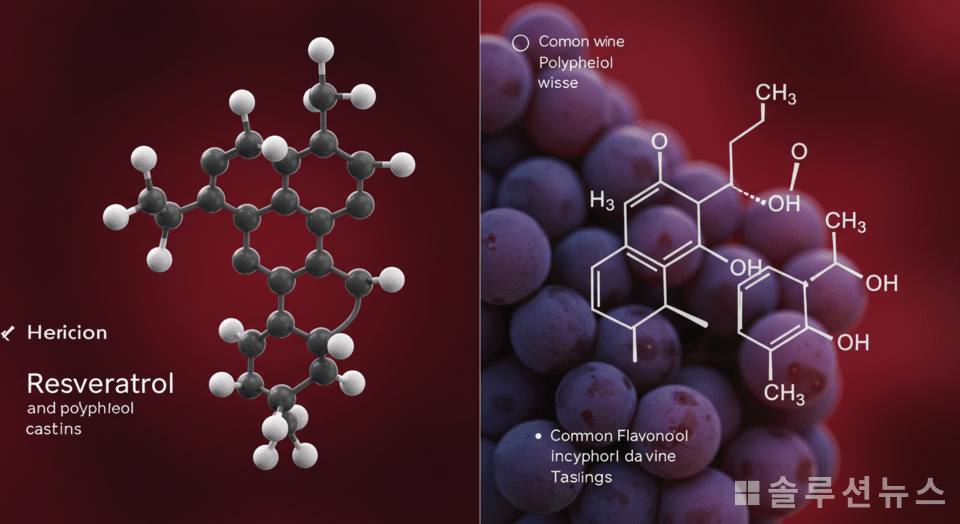Wine is often mentioned not just as a delicacy but also in terms of health. Particularly, the antioxidant elements of red wine have been noted for their cardiovascular disease prevention and anti-aging effects. However, as it is an alcoholic beverage, excessive consumption can be harmful. This article objectively examines the impact of wine on health based on scientific evidence.
Positive Effects on the Heart, Brain, and Cells

Red wine is rich in antioxidants like resveratrol and polyphenols. These components can help lower bad cholesterol (LDL) and relax blood vessels, aiding in improved blood flow. This action is related to the prevention of cardiovascular diseases such as myocardial infarction and stroke, with positive correlations reported in many epidemiological studies.
The antioxidants in wine also help reduce inflammation and inhibit cellular oxidation. Reactive oxygen species are primary causes of cell damage, affecting aging and disease. Especially, polyphenols have shown promising roles in enhancing immune function and preventing skin aging according to research findings.
Some studies suggest that moderate wine consumption can slow cognitive decline and reduce the incidence of dementia. Flavonoids extracted from grape skins and seeds can alleviate brain inflammation and improve blood flow, aiding in cognitive function maintenance. However, this effect is contingent on ‘moderate consumption’ only.
Health Risks of Excessive Drinking
The positive effects of wine can only be expected when consumed in small amounts. Exceeding 1-2 glasses per day (based on 150ml) may lead to various health problems such as liver dysfunction, alcohol dependence, hypertension, and gastrointestinal disorders. It is important to recognize that alcohol is inherently a toxic substance.
Individuals who are pregnant, suffering from certain diseases, or taking medication should avoid all alcohol consumption, including wine. For those with liver diseases or a history of alcohol abuse, the health risks are significant. While wine is a cultural and favored beverage, it is not universally suitable.
The Importance of Storage and Consumption Environment
Wine is sensitive to its drinking temperature and storage environment. Depending on the type, it should be maintained at an appropriate temperature between 6 to 18 degrees Celsius. Prolonged exposure to high temperatures can alter its taste and aroma. Avoid freezing wine or exposing it to ultraviolet light. Bottles should be stored lying down in an environment of 10-15 degrees Celsius and 60-70% humidity.
It is not about consuming wine that is good for health, but enjoying it within a range that does not harm health. The true value of a glass is enhanced when it leaves no burden on life.